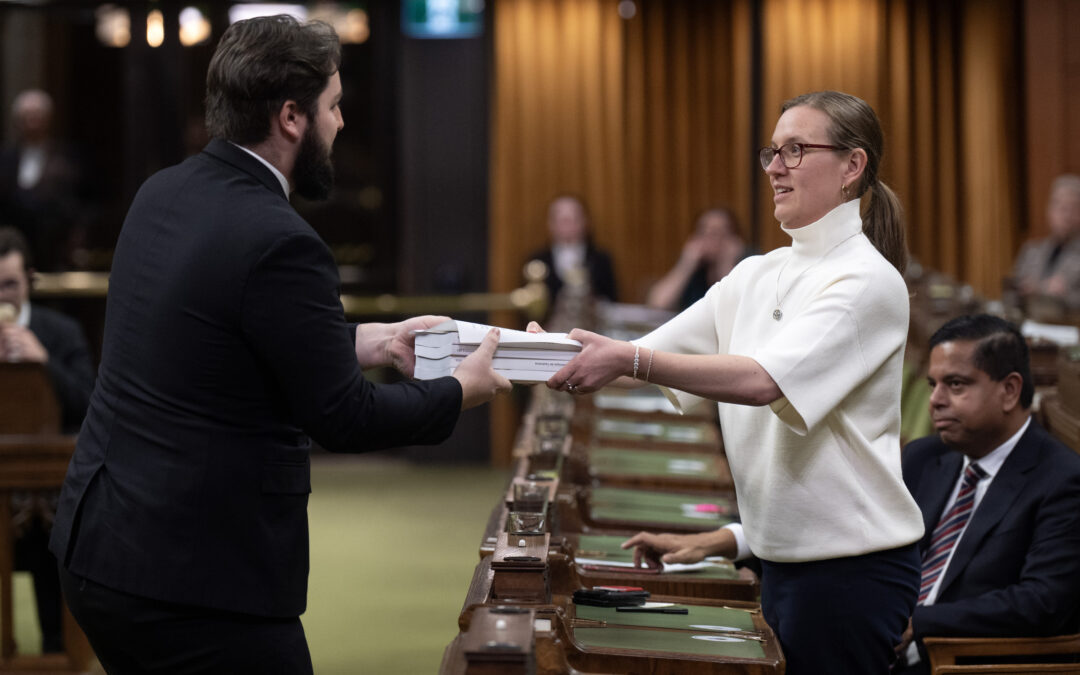Dominic Leblanc sworn in as Finance Minister while calls for Trudeau’s resignation grow
The Liberal government tabled the 2024 Fall Economic Statement (FES) today under a cloud of controversy following the shock resignation of former Finance Minister and Deputy Prime Minister Chrystia Freeland via a letter posted on X. Dominic Leblanc has been sworn in as the new Finance Minister, keeping his roles as Minister of Public Safety, Democratic Institutions and Intergovernmental Affairs. As of the writing of this note, the Prime Minister is defending his leadership in front of a Liberal caucus that is increasingly calling for his resignation and Liberal leadership race.
While we wait for the political dust to settle, here are the details on the FES.
Last year’s federal deficit came in a whopping $61.9 billion, blowing past the Liberal government’s fiscal guardrail of $40.1 billion, due to Indigenous claims playing out in court and costs related to the COVID-19 pandemic. While a significant and embarrassing miss on the deficit target set in the April budget, the revised deficit is due to one-time expenses. The deficit this year will be $48.3 billion.
The government has notably cancelled the $250 rebate cheques that were previously announced to workers in February. This was a point of contention for the NDP, who sought to expand eligibility for these rebate cheques to seniors and students.
The biggest line item in the FES is $17.4 billion over 5 years for the Accelerated Investment Incentive, which will enable companies to immediately expense investments in manufacturing or processing machinery and equipment, clean energy generation and storage equipment and zero-emission vehicles. These incentives will apply to qualifying capital investments beginning on January 1, 2025 for items available for use before 2030.
The government has announced $1.3 billion for a comprehensive border security package to Public Safety Canada, the Canada Border Services Agency, the Communications Security Establishment, and the Royal Canadian Mounted Police, in direct response to concerns expressed by the incoming Trump administration.
The FES also included $1.6 billion in new spending over the next six years to increase Canadian businesses through scientific research and experimental development tax incentives.
Other measures included within the $24 billion in new spending in the FES include:
- $150 million over three years, starting in 2024-25, for the Global Innovation Clusters and $24 million over two years, starting in 2025-26, for the National AI Institutes to support the continuation of their AI commercialization activities.
- Up to $15 billion for aggregate loan and equity investments in AI data centre projects that receive investment from one or more Canadian pension funds.
- Launching the fourth round of the Venture Capital Catalyst Initiative with $1 billion in funding in 2025-26, on a cash basis. This would leverage more private venture capital and will include more enticing terms for pension funds and other institutional investors.
- $600 million in interest free loans to support 15,000 to 24,000 more homeowners in reducing energy costs and advancing Canada’s goal of achieving net-zero emissions by 2050.
- $2 billion for the acceleration of the Apartment Construction Loan Program, supporting 4,000 homes to be built faster through low-cost financing.
- $27.8 million over five years, starting in 2025-26, for a new Red Tape Reduction Office, sourced from existing resources of the Treasury Board Secretariat.
- $597.9 million over three years, starting in 2024-25, to Public Safety Canada and the Royal Canadian Mounted Police to safely remove prohibited firearms from communities and fairly compensate assault-style firearms owners.
Additionally, the government announced several new policy programs aimed at supporting affordability. These include;
- $1.6 billion on the two-month GST “holiday.”
- Introducing a new refundable tax credit for personal support workers, potentially modelled on the design of the tax credit for volunteer firefighters.
- Bringing forward legislation to exempt the Canada Disability Benefit from being treated as income under the Income Tax Act.
- Doubling the loan limit for the Canada Secondary Suite Loan Program to $80,000.
- Developing legislation to allow the CRA to automatically file a tax return on behalf of certain lower-income Canadians using the information it has available, beginning as soon as the 2025 tax year.
- Delivering the Canada Carbon Rebate rural top-up to more Canadians by making those living in census rural areas and small population centres that are within CMAs eligible, starting in April 2025. With this change, 1.6 million more Canadians will receive the 20 per cent rural top-up next year.
The government has prolonged its current mandate by tabling this legislation with just two days left before Parliament rises for the Christmas holidays and does not currently face a confidence vote until early February. Whether by design or as a result of the impasse in parliamentary activities over the last two months, the NDP will take the next few weeks to weigh the costs or benefits of pulling its support for the government. As of now, NDP Leader Jagmeet Singh has called on the Prime Minister to resign but has stopped short of calling for an election.
The turmoil concerning Trudeau’s leadership comes at a challenging time for Canada, as the federal, provincial, and territorial governments prepare for economy-wide tariffs on exports to the United States following the inauguration of President-elect Donald Trump on January 20th. The first priority of the government, in the weeks ahead, will be to present a united front through this period of heightened instability.
Sheamus Murphy
Managing Partner
smurphy@counselpa.com
John Delacourt
Senior Vice President
jdelacourt@counselpa.com
Ben Parsons
Vice President
bparsons@counselpa.com
Amber Ruddy
Vice President
aruddy@counselpa.com
Alex MacDonald
Associate Vice President
amacdonald@counselpa.com






